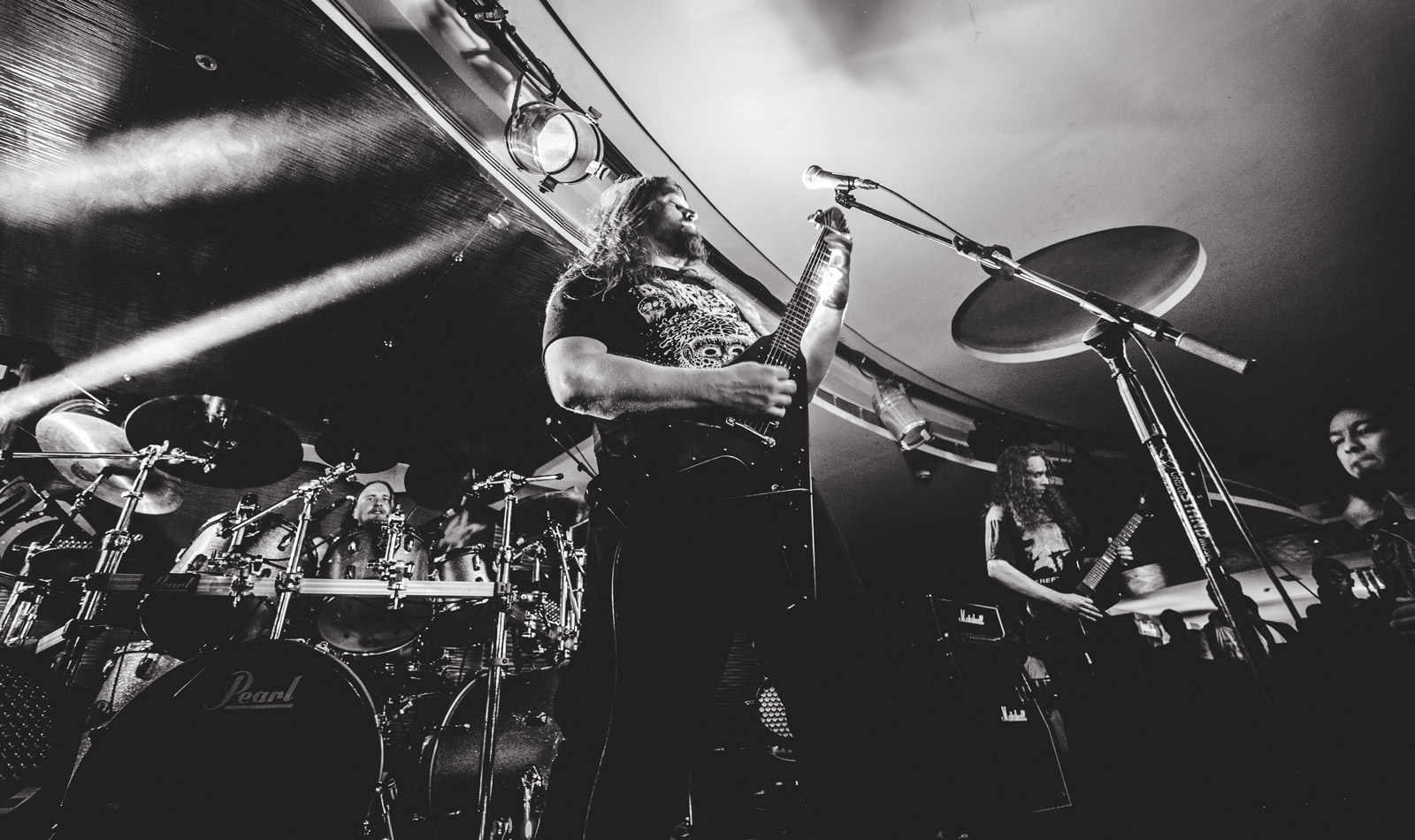 Photos by MetalFarmer and Oliver Stein.
Photos by MetalFarmer and Oliver Stein.
When it comes to Scandinavian metal, Sweden is famous for its patented buzzsaw riffing, while Norway has its frosty, “necro”-fi creations. Finland has spawned something less renowned, but every bit as essential: a form of homegrown death metal that’s often mournful and forbiddingly grim.
Antti Boman, guitarist, vocalist, and songwriter for Demilich, one of the country’s most durable underground exports, has a theory about why Finnish bands stand apart from their neighbors. Around 1990, when Demilich formed in Kuopio, about 250 miles north of Helsinki, he envied Swedish bands’ seemingly innate ability to “crush”—so much so that he tried to imitate their anthemic writing style. “It just didn’t work, because Finnish music is fucking depressing,” he says with a wry laugh, speaking via Zoom from Kuopio, where he still lives. “We are forest people living in darkness. So even the love songs—you might be singing about the love of your life, and it sounds like she’s dead. It was natural to us, and it always came into the music, whether we wanted it or not.”
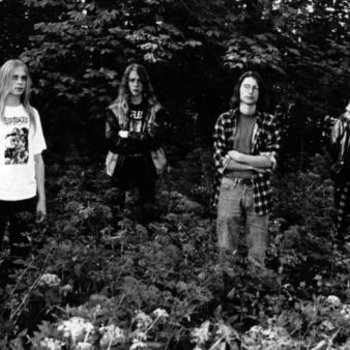

In the case of Demilich—whose Dungeons & Dragons–sourced name Boman says he pronounces “demi-lich,” “demi-lick,” or even with a throaty German-style “-ch” at the end, depending on the day—it wasn’t just a sense of gloom that set them apart. Countrymates like Demigod, Purtenance, Funebre, Convulse and Abhorrence—to name just a few of the bands immortalized in Rotting Ways to Misery, a crucial chronicle of the Finnish scene, recently translated into English—established a chunky, no-frills sound. Demilich, meanwhile, stirred in outlandish elements that made them an anomaly within an already marginal community: brain-teasingly complex riffs that suggested prog from beyond the grave, cosmic-horror-themed lyrics and, emanating from the darkest recesses of Boman’s throat, some of the deepest, most unearthly-sounding vocals ever heard in the genre.
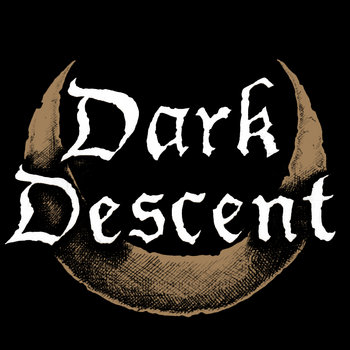
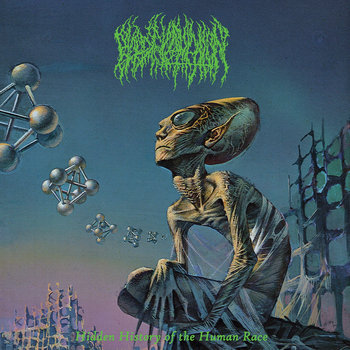
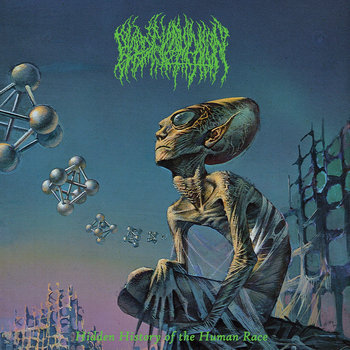
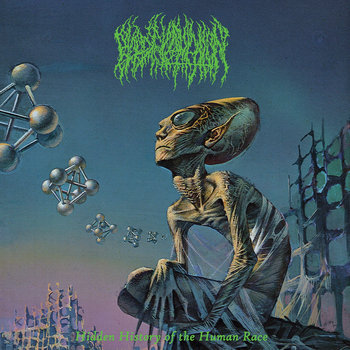
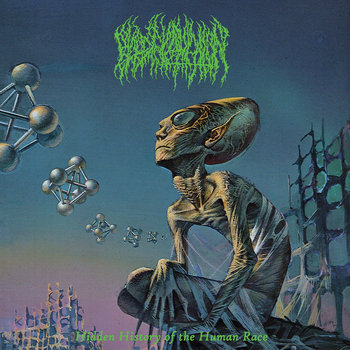
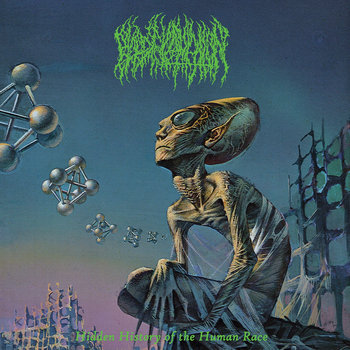

Vinyl LP, Cassette, Compact Disc (CD)




Improbably, during the past three decades, Boman has seen the reputation of his band’s lone album, Nespithe—its title an anagram of “The Spine,” scrambled according to Boman’s longstanding love of codes and puzzles—evolve from niche curiosity to prized underground classic, and a key touchstone for a new wave of adventurous death metal acts including Blood Incantation (who enlisted Boman for a wordless vocal cameo on 2019’s acclaimed Hidden History of the Human Race), Tomb Mold, and Chthe’ilist (a Demilich-inspired outfit from Québec for whom Boman professes a particular fondness). A band that only played one show outside its home country during its initial lifespan and broke up before Nespithe even came out now—in the midst of sporadic reunion activities that first kicked off around 2005—performs songs from the album, along with select cuts from Demilich’s four pre-Nespithe demos, all over the world to adoring crowds.
“It is very humbling,” Boman says of the positive reception the band and its tiny songbook still receive from fans. “I’m a bit too much of a person that’s like, ‘OK, now you’re praising me too much,’ but still of course it feels good. Whatever I’ve done, it’s totally honest, and if people praise that, they praise my honesty and what I am inside.” After a pause, he quips, “But my Finnish part is like, ‘Oh, shit, this is so embarrassing. You should stop now.’”
A definitive expanded remaster of Nespithe and the demos, titled 20th Adversary of Emptiness, came out in 2014 via Finland’s Svart Records. With the album turning 30 this month, we spoke to Boman about how sci-fi and horror inspired his lyrics; the autobiographical elements that found their way into a single Nespithe track; the technique behind his inimitable vocal style; and how his recently diagnosed neurodivergence might offer a key to Demilich’s legendary uniqueness.

There are so many elements that set Demilich apart from other death metal—the vocals, the song titles, the lyrics—but even after 30 years, your riffs still sound like no one else’s. Where did that unique writing style come from originally?
Back in the ’90s, I tried to play other people’s riffs, and on the first demo, I kind of copied stuff. And that’s why it quickly switched from the demo to Nespithe within one and a half years, because I let myself in the music. It’s very hard for me to do anything else; it’s like, I cannot keep this simple or keep this straightforward, or according to the laws of music. I just have to do something wrong.
I’ve been thinking about that a lot: It’s about my brain. Especially now that one and a half years ago I got an ADHD diagnosis, and then, well, autism spectrum disorder—not a diagnosis, but it’s pretty clear. And that kind of explained me. Because I’ve always wanted to do things my way. Like, I started tying my shoelaces and my sister was like, ‘Let me show you,’ and I was like, ‘No!’ I had followed how they do that, and then found out my way to do it. If you’re neurodivergent, it causes lots of troubles. It’s been a blessing and curse. But for me, fortunately, I created this music that resonates to people.


You’ve talked before about how your riffs sometimes grew out of visual patterns on the fretboard. How did you discover that method?
I’ve always been more like a designer in music, not like, ‘Hey, this rocks, and let’s keep it grooving…’ Part of it is because I never learned theory, or jamming. I try to fiddle and experiment. I am very pattern and geometry-based—or my brain is—so that’s the basis of how I must have started doing those. And then, if it didn’t sound so good, I tried to find some little path out of it, and maybe back to it. It’s like a map: From point A, doing a round trip through an unknown point B, and then somehow getting back to point A.
Your vocals are also unmistakable—the kind of thing you never forget once you hear them. Do you have a memory of the first time you made that sound and what it felt like?
I just remember that I was insecure and I didn’t want to be the leader of the band. Back then, I wanted to be the guy in the back with a guitar that nobody recognizes and who can watch the audience and see that they love my music. But we didn’t have anybody else in the band, so I had to try to do it. I hadn’t growled, and I would’ve wanted to sound like Martin van Drunen [of Pestilence and Asphyx] or LG Petrov [of Nihilist and Entombed]. It didn’t feel good to shriek, and for some reason, I did it the wrong way, and got the sound out of there somehow and stuck to it. It was a mistake.
I know a professional throat/ear surgeon, and he came to see our show, and he told me that he might know how I formed that voice. Because it’s not with the vocal cords, but there are some lower ones here somewhere [points to lower part of throat], and I can make them resonate, by releasing the air. So that might be it, combined with a properly formed throat for it. I don’t know…I’ve been trying to teach people. I know one guy who can almost do it, but it’s not that strong, and he cannot do it for very long.


Along with the word-scrambling found in the album title, one of the Demilich trademarks is these long, elaborate song titles: “The Planet That Used to Absorb Flesh in Order to Achieve Divinity and Immortality (Suffocated to the Flesh That It Desired)” or “The Sixteenth Six-Tooth Son of Fourteen Four-Regional Dimensions (Still Unnamed).” What inspired you to write like that?
I read a lot when I was young, fiction mainly. I read sci-fi, from [Isaac] Asimov to Philip K. Dick. Dan Simmons was cool too. I read a lot of horror—Stephen King and Clive Barker and stuff like that. Everything that had things that made you think—that surprised you.
And then I had a wild imagination. I love coming up with ideas and stories, because, if you think about it, all those songs are stories. They aren’t, like, a state which I described; they are always stories that start from something and end in something—usually gloomy. But it’s like in music: patterns, starting music first, then tying everything together; it’s the same with lyrical and thematic things. I’ve always come up with the story and the idea first, and then I usually came up with the song name, and then it was the hard part to create the lyrics.
‘The Sixteenth Six-Tooth Son,’ it’s kind of embarrassing, because of course I took it from [Iron Maiden’s] Seventh Son [of a Seventh Son] and wanted to take it to something weirder. And then ‘The Planet’ was because there were those songs with long names, so I wanted to make a really long one [laughs].
What’s interesting is that even these cosmic-horror scenarios you describe seem to have an emotional element. Like in “The Planet,” you talk about a “silent, forsaken planet” that’s “condemned to loneliness.”
I remember that ‘The Planet’ was the last song I made—not lyrically, but as an idea. It’s actually telling about myself, because I started realizing that soon I was gonna have to be an adult and take care of myself, and I had this possibility to make music and study, and my parents paid for everything. So, kind of growing up.
And I started feeling lonely. I started realizing I didn’t like some of the things in me—I knew about those things earlier, but then accepting that these things will be hard for me in the future. And I kind of made [the song] about myself. It’s like this planet, alone, desiring to have it all and getting suffocated because of wanting to have it all. I really struggled about what I wanted. I didn’t have any aim. Like, what am I gonna be in the future? I wanted everything; I was so—I still am—very interested in everything, and I haven’t ever been good at choosing what’s my path. And especially then, when I started feeling that I’m dropping out of the death-metal scene, and my interest was going very low, it was like I was there alone—in space.
As you said, when Demilich disbanded, you distanced yourself from the scene entirely. When did you realize that a cult fan base was starting to build up around Nespithe?
In ’93, when we stopped, I stopped everything. And, as the internet wasn’t really big back then, I didn’t see what happened. So I dropped the contacts, everything. I started to live the life that was expected: trying to get a job and family and a mortgage, and cool things people expect people to get [laughs]. And I struggled there a lot.
Then there was this local metal bar that had opened up maybe a year earlier. And one day I was intrigued, and I went there, and there were younger people than me; I was an oldie already. And right on top of the bar was our promo photo from Nespithe. This was in ’98. So it’s like, ‘What the fuck?’ I talked to the owner, and he was like, ‘Oh, you’re from Demilich! The kids here listen to you a lot.’ That’s when I started realizing, and I started asking and following things, and I’m like, ‘OK, it’s actually not been forgotten, but vice versa.’ Not much, but people had started to understand what was going on.

And that appreciation for the band only seems to be growing. After your set at Maryland Deathfest last year, you had droves of people lining up for merch and photos. When you’re onstage at one of these big festivals, do you ever stop to think about how strange this whole saga is—that you made one album and broke up, and now almost 30 years later, your band is touring the world, more beloved than ever?
Especially now, I’m capable of being more proud of it. Because when the album came out, we had already stopped the band, and I was kind of embarrassed about the whole thing. I listened to it a bit and I was like, “I would’ve done this so differently.” I kind of gave up, and I wasn’t proud at all. And then, little by little, I became proud in a good way—not proud in a stuck-up way. Proud like, ‘OK, we’ve got something that still works for people.’ And that pride, it’s been boosted all the time because every couple of years I’m like, ‘OK, it’s still bigger.’
Because I have this feeling that someday people [might] realize [Nespithe is] not that technical and not that complicated, and they realize that, ‘Oh, shit, we’ve been fooled,’ and stop listening to it. But it just doesn’t happen. But of course, then, the other feelings are like, ‘OK, we are riding this album from 30 years ago and doing gigs and traveling the world just because of that.’ And that’s something I hated when I was younger about [older] bands, and it’s still sometimes hard for me.
Sometimes—nowadays, especially—I see people smile throughout the gigs. And it’s like, ‘OK, if they are so happy to see us, maybe I just should be happy too, and not think too much about riding the history.’
You often joke from the stage about playing songs from “our only album”—that’s almost become the Demilich trademark. There was one song written around 2005 that was included on the 20th Adversary of Emptiness comp, but there’s been no definitive word about new Demilich music for a while. How likely is it that there will ever be a follow-up to Nespithe?
There will be at least four songs, that’s for sure. Well, nothing’s for sure, of course—I’m turning 49. But we have four songs ready—er, almost ready. The finalizing phase, it’s been taking time. But now I’ll concentrate on that and get them out, and I have the plan and some riffs. I have the whole concept for the second album, but we’ll see what happens. I can’t promise anything—you must understand [laughs].







